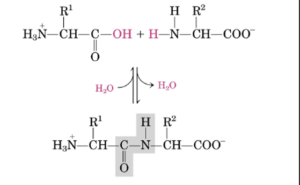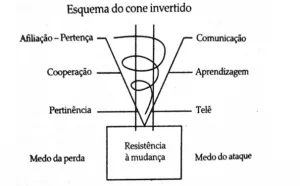SANTOS, Alan Ferreira dos [1]
SANTOS, Alan Ferreira dos. The work of Psychologist Along to drug abusers. Multidisciplinary Core scientific journal of knowledge. Year 01, vol. 09, pp. 790-798, October/November 2016. ISSN:2448-0959
SUMMARY
The area of drug abuse in Brazil, underwent several transformations in the course of recent years. Over time the chemical dependency treatment model was changing, due to the increase of public policies and the researches developed in the area, which changed the method of research, using knowledge of Kurt Lewin (1890-1947). The insertion of the psychologist in the enabled the opening of a broad discussion on the modes of care, mostly a critique of the old model asylum, resulting in change in brazilian legislation. Method: a bibliographical research of qualitative nature. Objectives: Understand the insertion of the psychologist in the treatment of addicts and their contributions area. Conclusion: in this trajectory of Psychology what is evident is that much still needs to be done to the psychologist be broader still, because when former student graduation, is totally devoid of knowledge necessary for the treatment of a chemical dependent, still not able to do this welcome and support this individual who is in a situation of social vulnerability.
Key words: Social Psychology, Addiction to Hospitalization.
INTRODUCTION
To better understand the care field related to chemical dependency in Brazil, is necessary before we look at the historical perspective prior to the reality of the treatment methods used by Rehab clinics. For a long time, the only option for users of alcohol and other drugs was provided by psychiatric hospitals or institutions asilares that used the paradigm of abstinence and compulsory hospitalization, all a result of the abuse of alcohol and drugs were delegates to the user himself, being this, a stain on society of the 50. The dependent to join the institutions suffered ill-treatment, going through a period of total abstinence and medicalization. At the end of the treatment was returned to society, where it passed through a series of difficulties, because it was a victim of prejudice and discrimination, these factors that contributed significantly to your relapse.
In the 20th century, the drugs have become a social concern, presented as a factor detrimental to society as a whole, resulting in the creation of the current "global consensus prohibitionist." From that point on it was prescribed the illegality of some psychoactive substances that are considered harmful to public health, criminalized and socially desqualificavam users of these drugs, and generator of value convictions.
Over time the chemical dependency treatment model was changing, due to the increase of public policies and the researches developed in the area. Gradually, were being used in the treatment of addicts humanized methods, based on studies of the social psychologist Kurt Lewin (1890-1947) where the same, consider the whole context interrelation motion of the individual. The chemical dependent is no longer considered a criminal to be legitimized as a "sick", treatment clinics began to use humanistic paradigms, where the focus was always returned to the subject, where the dependent's family would receive the proper support, being possible to recognize as such, determinants that would lead or inducing drug abuse (Council, F, P, 2013).
INNOVATIONS DEVELOPED BY PSYCHOLOGISTS IN RELATION TO CHEMICAL DEPENDENCY.
The difficulty and the challenge of treating addicts is a reality of any psychologist, especially when it comes to centers for psychosocial care (CAPS). Therefore there is a need to seek proposals to allow better suitability for treatment, through activities that contribute to the rescue of the citizenship of the subject such as football games, drawing workshops, movie sessions, reflections on Ethics and justice and psychotherapy groups. On (CAPS), abstinence is encouraged, but the greater purpose is in the recovery of the subject, which begins to be lost to enter on addiction, the creation of trust must be established by psychologist and so the link will allow the user to understand the process by which it is passing and that the institution will find the host required for your rehabilitation (COUNCIL, F, P, 2013).
Because of the great demand of patients and few psychologists to attend, some institutions use as therapy and focus group work method that AIDS in socialization of dependents. The group enables the understanding that the addict has to himself, taking the focus of counseling (therapy session) as more effective in treating chemical dependency "users can stop and think: I exist, have emotions and feelings "(Council, F, P, 2011, p. 10).
But it is important to note, that seek help from health professionals is not a reality for some people in situation of risk and social vulnerability, so it was created at the end of the Decade of 90 in Salvador (BA) the project called street Offices, consisting of in mobile clinics according to the need of every demand, the group is composed of health professionals, including psychologists. This project was created for the homeless that, because of the prejudice suffered often fail to receive the necessary care, the intention is not to judge your way of life, so they realize that these service vehicles are there for them to be welcomed.
The expertise in interdisciplinary team is also a solution for receiving and routing of new cases in centres of Attention, performing the consultation liaison with the basic health network, where it is often the first to be sought. Consists in a collective way to discuss cases with basic network professionals and CAPS, and evaluate together what the best treatment option for that user. The role of the psychologist in relation to consultation liaison is to guide other professionals about the importance of differentiation of levels of severity of addiction and listening to users and their families, in the understanding of the Psychodynamics of the situations, help professionals to develop strategies to encourage the user to realize that he is the one who can improve your life and who has the power to change your situation, what you're trying to promote in this regard is the responsibility on himself.
The harm reduction strategy (RD) was created with the objective of reducing the health damage as a result of risk practices (such as the use of drugs) encouraging the autonomy of the user to reacquire your condition of citizen according to the human rights encourages the creation of contacts with the users, due to the context of vulnerability, do not want to stop using drugs. The RD does not use the punidoras practices like abstinence, but allows contact between users and agents of harm reduction, which allows people who use drugs (licit or illicit) get their rights and access to public policy (health , education, work). The RD should be linked to basic health network and the CAPS, where people can be met close to the places where they live by reducing agents of damage, community health agents and multidisciplinary teams.
The role of the psychologist within this strategy is built through establishing base link, where you can carry out the work, thus, it is not for the professionals of psychology, any form of moral censorship to the behaviors of users with respect to the use of illicit psychoactive substances or behaviors considered moral and customs mixed regarded as acceptable. The role of the professionals is to connect to a part of the population that often is the margin of the health and social network for fear of rejection (Council, F, P, 2011).
This strategy puts at issue the forms of hospitalization that use abstinence as the only way to find quality of life, excluding the possibility of freedom of choice and individual responsibility, social and family, right to completeness their actions and social support networks.
The chemical dependency is characterized by the presence of a group of psychological, behavioral and physiological symptoms indicating that the individual is still using a substance, despite significant problems related to it. Is considered a public health problem that has been growing and surpassing every boundaries social, emotional, and national policies. Notes that users of drugs, including alcohol and cocaine, have high rate of relapse, and the motivation one of the important factors for the success of the treatment.
There are many factors that can motivate the use of drugs, such as the pursuit of pleasure, or the need to be accepted by the group. As such the dependency is the biopsychosocial approach to treating the problem should consider biological, psychological and social elements and the motivation must be seen as a State of readiness or eagerness for change, that can float a moment to other and can be understood as an internal condition influenced by external factors. Within the motivation, is a process by which the individual transitions between four stages:
In the pré-contemplação the individual is aware that there is a problem and, if any, will assume the responsibility of others. At this stage it is not advisable to guide you directly to abstinence and confront him with accusations, because he still does not recognize that it needs to stop. The ideal is to help you recognize and develop awareness of their problems.
When you're in the phase of contemplation he begins to realize that there's a problem, acknowledges some disadvantages to be using drugs, but takes no action to change, that is, keeps using.
The determination is the stage at which the subject intends aims to change the behavior, stop using drugs, treatment. It is necessary, then, an action plan to ensure the results.
From there he will be in the stage of action, putting into practice its attempts at change. At the moment all possibilities need to be easily accessible, for example, the vacancy in a therapeutic community must be guaranteed, otherwise, the delay will be an obstacle, you can bring it to the stage of contemplation or pré-contemplação and he give up.
In the maintenance stage the individual modifies your lifestyle, moves away from the old group of friends, stay abstinent and avoid relapse. It is imperative that he identify what are the risky situations that can encourage relapse, for prevention (FREITAS, D, b. 2006, p. 2).
After a study of the four previous steps, highlights the importance of the use of therapeutic techniques to help these patients on decrease of ambivalence, i.e. the conflict between change and stay at current behavior. Therapeutic techniques can help patients progress toward the action and maintenance stages, since they are evolving and ever discriminate against a possibility of change.
The Government created the integrated plan for combating cocaine and other drugs. Despite several promises of improvements in inpatient services and reception, the true purpose of the Executive and the National Congress is the involuntary commitment. This is because the drug user represents a social danger, due to loss of ability to self-determination.
In cracolândia in downtown São Paulo it is estimated that there are about 10000 cocaine users living in subhuman conditions, crack cocaine is seen as "being the cause of misery and exclusion", such social belief collaborates for the involuntary commitment, supporting also the Compulsory internment, determined by the judicial authority. User segregation is not a solution. The compulsory treatment is violence, means denial of freedom:
Abstinence may not be, then, the only goal to be achieved. In fact, when it comes to taking care of human life, we must necessarily deal with the singularities, with the different possibilities and choices are made (BRAZIL, 2003, p. 10).
You have to realize that the involuntary treatment is not effective because it does not convince the guy stopping the habit. If drug use tends to stay high, the treatment policy of involuntary commitment probably indirectly encourage drug use.
FINAL CONSIDERATIONS.
The Human Rights Commission of the Council of Psychology performed a national inspection on the units of treatment for drug addicts in order to publicize the violation of rights of inmates.
In the State of São Paulo, where two clinics were observed, of which both occur to the violation of human rights, as for example: punishment/punishment, lack of doctors, poor structure, poor hygiene, bad food, deprivation of social contact, unpaid work (enslavement), constraint and vexatious situations, disregard the choice or absence of creed, by means of medicalization, disregard sexual orientation and between other (Council, F, P, 2012).
Completing the inspection, it was observed the disregard the citizenship of users, which is contrary to public policy. That is, replace the chemical dependency for submission to an ideal, keeping meek and completely outnumbered the subjects treated. To combat such abuses of institutionalized users, it is necessary the creation of public policies, such as the continuity of the psychiatric reform.
The social construction of reality is of fundamental importance in the life of the subject will develop, because of different ways you can get to become addicted, however the history of creation of a person can warn you of the social dynamics that drive the individual to become a dependent.
An individual may develop in a family, having positive affects, education and socioeconomic income that satisfy all needs of this, however in your social life, I mean in the context of social interactions, depending on the dynamics can be experienced an induction of the subject to take advantage of certain drugs or because of social pressure or need for group inclusion, maybe to an addiction. In the same way that this character may have a good social relationship, but have family conflicts, walking like that to drug use as a refuge in your own being. With this we see that in different ways can occur the formation of addicts, the variables are of immense complexity starting from the subjective aspects (emotional) to broader social relations, these social dynamics are perceived in a particular form for each individual (Board, F, P, 2012).
The psychologist has several obstacles to overcome, since issues that start in professional practice, until the political issues. Obstacles in therapeutic practice end up becoming common, requires, when actually has little, this encourages the professional to take action on their own as the street offices and an emergency measure. However not all professionals are ending with the idea of always innovate and also will not be all that have developed techniques for mass attendance, which in most cases are not as efficient in need of other types of treatment for these cases, which require a totality of professional practice. Such leading issues in a highly complex and extensive discussion with the need of an interdisciplinary scientific areas such as sociology, politics, psychiatry and the other dealing with the critical area.
This trajectory of Psychology what is evident is that much still needs to be done to the psychologist be broader still, because when former student graduation, is totally devoid of knowledge necessary for the treatment of a dependent chemical, still not able to do this welcome and support this individual who is in a situation of social vulnerability.
BIBLIOGRAPHICAL REFERENCES.
Brazil. Ministry of health. National coordination of STD and Aids. Harm reduction manual. Brasília, 2003.
COUNCIL, F, p. Health Assistance and contributions of psychology. Dialogue Magazine: alcohol and other drugs, Brasília: CFP, v. 6, p. 23-25, nov. 2009.
COUNCIL, F, p. Drugs: citizenship and care are keys to the psychology. Federal Journal: drug user needs care, attention and dignity. Brasilia: CFP, p. 4-7. out. 2011.
COUNCIL, F, p. Drugs and citizenship: in debate. Brasilia: CFP, 2012.
COUNCIL, F, p. Emerging and innovative Practices of psychologists (the) in the field of public policies for psychosocial care centers: alcohol and Drugs. Brasilia: CFP, 2011-2013.
COUNCIL, F, p. report of the fourth national human rights Inspection: places of internment for drug users. Brasilia: CFP, 2011.
COUNCIL, F, p. technical references for Performance of Psychologists (the) Public policies on alcohol and other Drugs. Brasilia: CFP, 2013.
FREITAS, d. b. motivational Stages for behavior change adolescents. Porto Velho, Rondônia, 2006.
[1] Undergraduate course of Psychology-Universidade Paulista (Unip)



